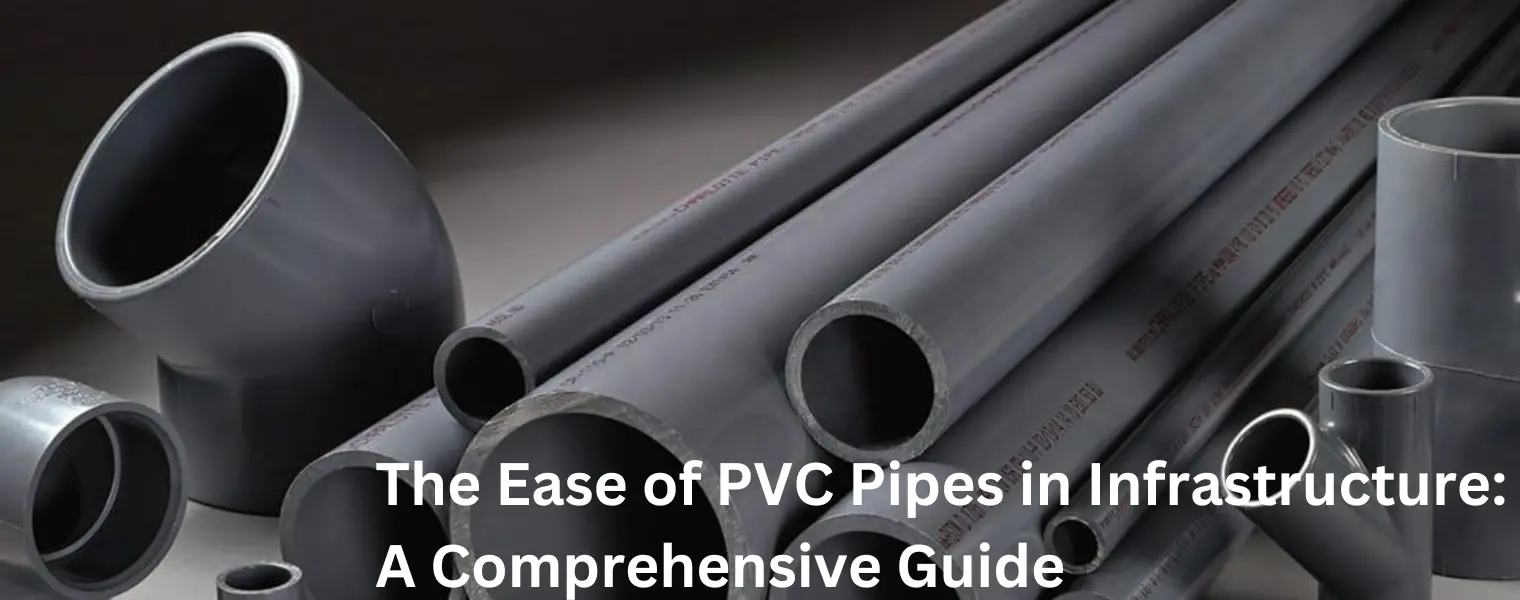
In the ever-evolving landscape of infrastructure development, the choice of materials plays a pivotal role in determining the success and efficiency of projects. Among the myriad options available, PVC pipes have emerged as a standout choice, offering unparalleled ease of use and installation. In this comprehensive guide, we delve into the various aspects that make PVC pipes a preferred material in infrastructure development.
One of the key advantages of PVC pipes lies in their simplified installation process. Unlike some traditional materials that require specialized skills and tools, working with PVC pipes is remarkably straightforward. The lightweight nature of PVC makes handling and transporting these pipes a breeze, reducing the need for heavy machinery during installation.
PVC pipes have found their way into a wide range of infrastructure projects due to their versatility. Whether it's for water supply, drainage systems, or underground conduits, PVC pipes can be easily adapted to various applications. Their flexibility and compatibility with different joining methods contribute to their ease of integration into diverse projects.
Beyond the ease of installation, PVC pipes offer a cost-effective solution for infrastructure development. The reduced labor and equipment requirements during installation translate into significant cost savings. Additionally, the durability of PVC pipes ensures a longer lifespan, minimizing the need for frequent replacements and maintenance.
PVC pipes empower not only professional contractors but also DIY enthusiasts and small-scale developers. The simplicity of working with PVC makes it an ideal choice for those looking to take on projects independently. From garden irrigation systems to small drainage setups, PVC pipes allow individuals to bring their infrastructure visions to life with minimal hassle.
Traditional materials often suffer from corrosion and degradation over time, leading to increased maintenance and replacement costs. PVC pipes, on the other hand, exhibit high resistance to corrosion and various chemicals. This resistance ensures the longevity of the infrastructure, reducing the frequency of repairs and replacements.
In an era where environmental sustainability is a top priority, PVC pipes shine as a responsible choice. The manufacturing process of PVC pipes consumes less energy compared to some traditional materials. Furthermore, PVC is recyclable, contributing to a more environmentally friendly approach to infrastructure development.
As we maneuver through the intricate landscape of infrastructure development, the simplicity of materials takes center stage as a crucial determinant of project success. Polyfab PVC pipes, renowned for their uncomplicated installation, adaptability, cost-effectiveness, DIY-friendly characteristics, corrosion resistance, and environmental considerations, stand out as a holistic solution for contemporary infrastructure challenges. Opting for Polyfab PVC pipes not only streamlines the construction process but also contributes to the establishment of sustainable and enduring infrastructure. Connect with us to engage in a conversation with our experts, ensuring the selection of the right PVC fittings tailored to your specific requirements.